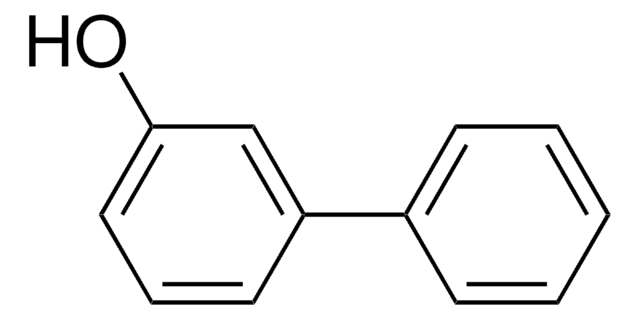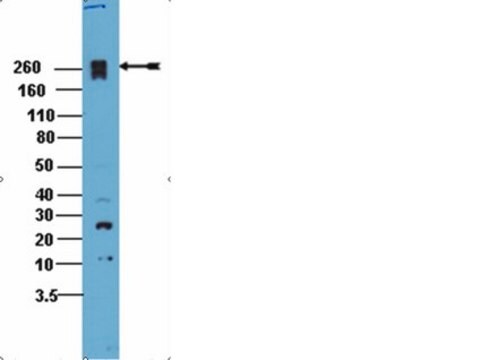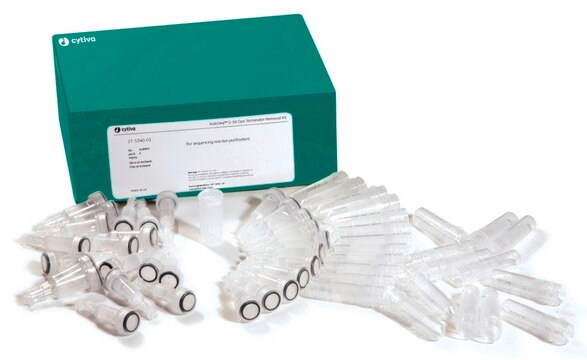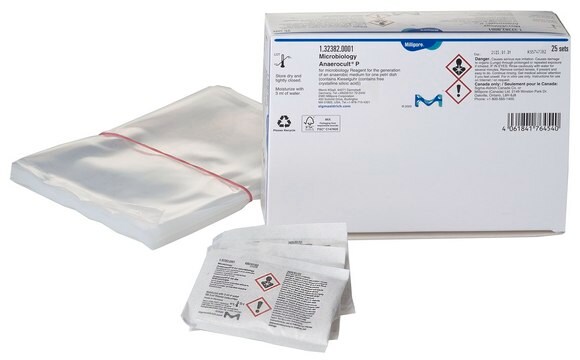3018
Transcreener® UDP2 FP Assay
Synonym(e):
Transcreener assay
Anmeldenzur Ansicht organisationsspezifischer und vertraglich vereinbarter Preise
Alle Fotos(1)
About This Item
UNSPSC-Code:
41122100
NACRES:
NA.84
Empfohlene Produkte
Versandbedingung
dry ice
Lagertemp.
−20°C
Allgemeine Beschreibung
The Transcreener® UDP2 FP Assay is a universal biochemical HTS assay for enzymes that produce UDP, including glycosyltransferase, galactosyltransferase, glucuronyltransferase, N-acetylglucosamyltransferase, N-acetlygalactosyltransferase, xylosyltransferase, and glycogen, cellulose, lactose and hyaluronan synthases. Enzyme activity is signaled by a decrease in fluorescence polarization as the bound tracer is displaced from the Transcreener® UDP2 Antibody. The assay is a simple single step mix-and-read format enabling the use of unmodified native substrate concentrations of 1 – 1000 μM. The assay provides excellent signal at low substrate conversion, with a Z′ =0.7 and =100 millipolarization shift (mP) under normal reaction conditions.
View full Transcreener® product list
View full Transcreener® product list
Menge
3018-1K = 1,000 assay, 384-well
3018-10K = 10,000 assay, 384-well
3018-10K = 10,000 assay, 384-well
Physikalische Form
Kit with buffered aqueous solutions
Rechtliche Hinweise
Transcreener is a registered trademark of BellBrook Labs
Hier finden Sie alle aktuellen Versionen:
Analysenzertifikate (COA)
Lot/Batch Number
Die passende Version wird nicht angezeigt?
Wenn Sie eine bestimmte Version benötigen, können Sie anhand der Lot- oder Chargennummer nach einem spezifischen Zertifikat suchen.
Besitzen Sie dieses Produkt bereits?
In der Dokumentenbibliothek finden Sie die Dokumentation zu den Produkten, die Sie kürzlich erworben haben.
Traci E Battle et al.
Blood, 102(8), 3016-3024 (2003-07-12)
Bryostatin 1 is known to exhibit in vitro and in vivo activity against chronic lymphocytic leukemia (CLL) cells by inducing their further maturation into plasma-like cells. Signal transducer and activator of transcription (STAT) proteins play a central role in B-lymphocyte
Dennis S Metselaar et al.
EBioMedicine, 50, 81-92 (2019-11-19)
Pediatric high-grade gliomas (pHGG) are the leading cause of cancer-related death during childhood. Due to their diffuse growth characteristics, chemoresistance and location behind the blood-brain barrier (BBB), the prognosis of pHGG has barely improved in the past decades. As such
Unser Team von Wissenschaftlern verfügt über Erfahrung in allen Forschungsbereichen einschließlich Life Science, Materialwissenschaften, chemischer Synthese, Chromatographie, Analytik und vielen mehr..
Setzen Sie sich mit dem technischen Dienst in Verbindung.








